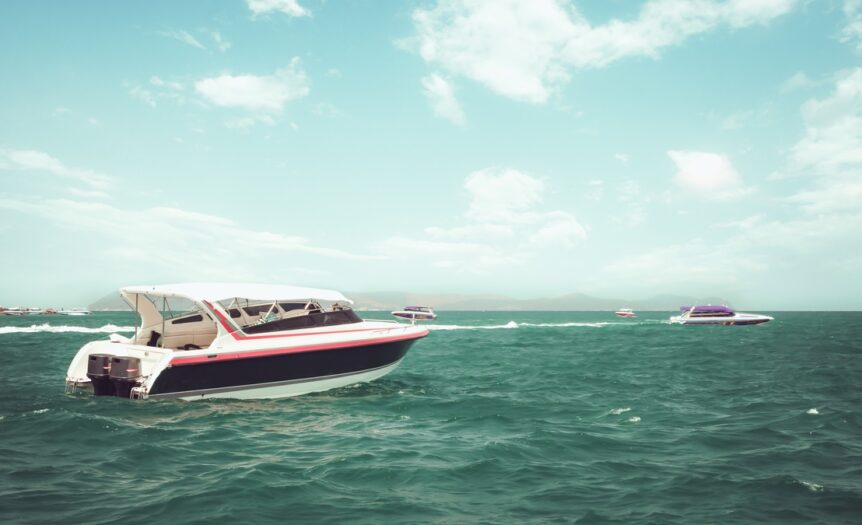Saltwater adds an extra layer of fun to your boating adventure, but it comes with its own set of challenges. For boat enthusiasts who take their motors out in saltwater, understanding its impact can save time, money, and headaches. Continue reading to discover how saltwater usage impacts outboard motor performance.
Corrosion Problems
Saltwater causes metal components to rust and break down much faster than freshwater. The high salinity accelerates oxidation, leading to corrosion on critical parts, such as the motor’s casing, bolts, and propellers. Rust can weaken these parts to the point of failure, significantly affecting the reliability of your motor.
Routine flushing with fresh water is a must after every saltwater outing to wash away salt deposits and reduce the risk of corrosion. Applying anti-corrosion sprays to exposed metal parts is another effective step to combat long-term damage.
Cooling System Damage
Saltwater can wreak havoc on your outboard motor’s cooling system by depositing salt and other debris within the waterways. Over time, these deposits accumulate and restrict water flow, increasing the risk of overheating issues in outboard motors. Motors operate at high temperatures, so efficient cooling is critical for performance and durability.
Flushing the cooling system with fresh water after every trip clears out harmful salt deposits and helps maintain proper water flow. Neglecting this step can shorten your motor’s lifespan and lead to costly repairs.
Saltwater and Electrical Issues
Saltwater exposure creates an environment that encourages electrical problems. The combination of moisture and salt accelerates the risk of short circuits, wiring corrosion, and even failure of essential electronic components. Failing to address these issues can lead to erratic motor behavior or complete breakdowns.
Regular inspections of the motor’s electrical connections, followed by cleaning and the application of dielectric grease, significantly reduce these risks. Sealing vulnerable connections also adds an extra layer of protection against saltwater interference.
Simple Maintenance Tips
Taking care of your outboard motor after saltwater adventures doesn’t have to be complicated. Always rinse your entire outboard motor with fresh water to clear away salt and debris. Pay special attention to flushing the cooling system thoroughly. Coating parts like the propeller and motor casing with anti-corrosion treatments is essential.
Always inspect electrical connections for buildup or damage. Using a high-quality boat cover helps prevent salt and moisture from accumulating on the motor during storage. Being consistent with these steps maintains your motor’s performance and reduces long-term wear and tear.
Saltwater offers unique and exciting boating experiences, but it also necessitates extra maintenance. Paying close attention to issues such as corrosion, cooling system blockages, and electrical damage ensures your motor remains reliable and ready for action. Consistent care after every saltwater ride goes a long way in preserving performance and avoiding costly downtime. Start today by giving your outboard motor the care it deserves so you can enjoy smooth sailing on every trip.










 Deering Estate
Deering Estate
 Massage Envy South Miami
Massage Envy South Miami
 Calla Blow Dry
Calla Blow Dry
 My Derma Clinic
My Derma Clinic
 Sushi Maki
Sushi Maki
 Sports Grill
Sports Grill
 The Healthy Kitchen
The Healthy Kitchen
 Golden Rule Seafood
Golden Rule Seafood
 Malanga Cuban Café
Malanga Cuban Café

 Kathleen Ballard
Kathleen Ballard
 Panter, Panter & Sampedro
Panter, Panter & Sampedro
 Vintage Liquors
Vintage Liquors
 The Dog from Ipanema
The Dog from Ipanema
 Rubinstein Family Chiropractic
Rubinstein Family Chiropractic
 Your Pet’s Best
Your Pet’s Best
 Indigo Republic
Indigo Republic




 ATR Luxury Homes
ATR Luxury Homes


 2112 Design Studio
2112 Design Studio
 Hamilton Fox & Company
Hamilton Fox & Company
 Creative Design Services
Creative Design Services
 Best Pest Professionals
Best Pest Professionals
 HD Tree Services
HD Tree Services
 Trinity Air Conditioning Company
Trinity Air Conditioning Company
 Cisca Construction & Development
Cisca Construction & Development
 Mosquito Joe
Mosquito Joe
 Cutler Bay Solar Solutions
Cutler Bay Solar Solutions


 Miami Royal Ballet & Dance
Miami Royal Ballet & Dance
 Christopher Columbus
Christopher Columbus
 Pineview Preschools
Pineview Preschools
 Westminster
Westminster
 Carrollton
Carrollton
 Lil’ Jungle
Lil’ Jungle
 Frost Science Museum
Frost Science Museum
 Palmer Trinity School
Palmer Trinity School
 South Florida Music
South Florida Music
 Pinecrest Orthodontics
Pinecrest Orthodontics
 Dr. Bob Pediatric Dentist
Dr. Bob Pediatric Dentist
 d.pediatrics
d.pediatrics
 South Miami Women’s Health
South Miami Women’s Health

 The Spot Barbershop
The Spot Barbershop
 My Derma Clinic
My Derma Clinic




 Miami Dance Project
Miami Dance Project

 Rubinstein Family Chiropractic
Rubinstein Family Chiropractic
 Indigo Republic
Indigo Republic

 Safes Universe
Safes Universe
 Vintage Liquors
Vintage Liquors
 Evenings Delight
Evenings Delight





 Atchana’s Homegrown Thai
Atchana’s Homegrown Thai
 Baptist Health South Florida
Baptist Health South Florida

 Laser Eye Center of Miami
Laser Eye Center of Miami
 Visiting Angels
Visiting Angels
 OpusCare of South Florida
OpusCare of South Florida

 Your Pet’s Best
Your Pet’s Best





 HD Tree Services
HD Tree Services
 Hamilton Fox & Company
Hamilton Fox & Company


 Creative Design Services
Creative Design Services